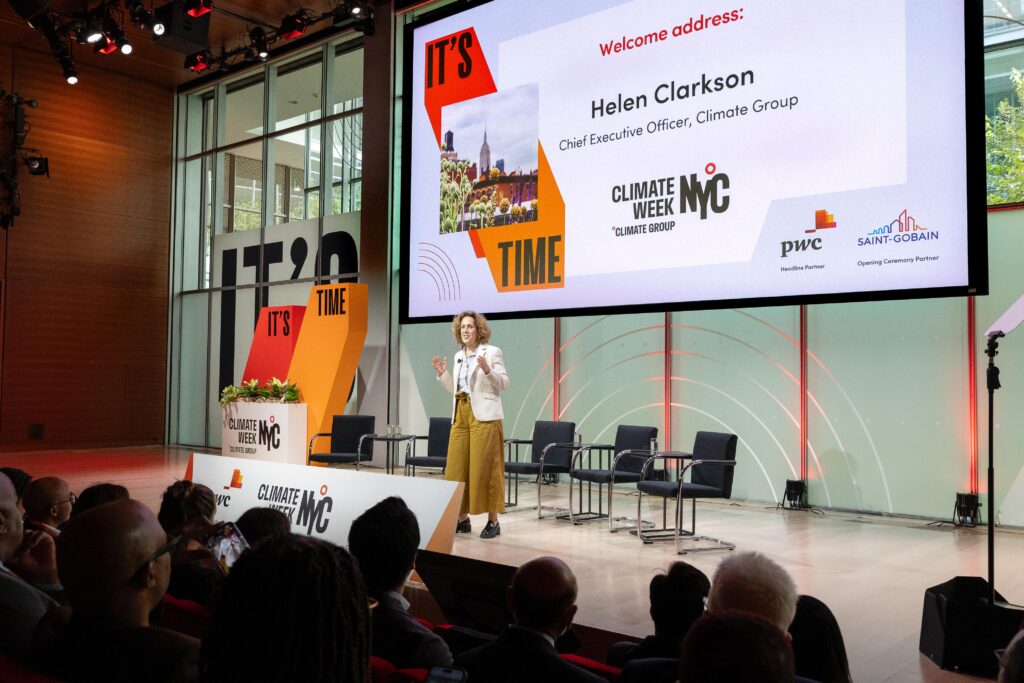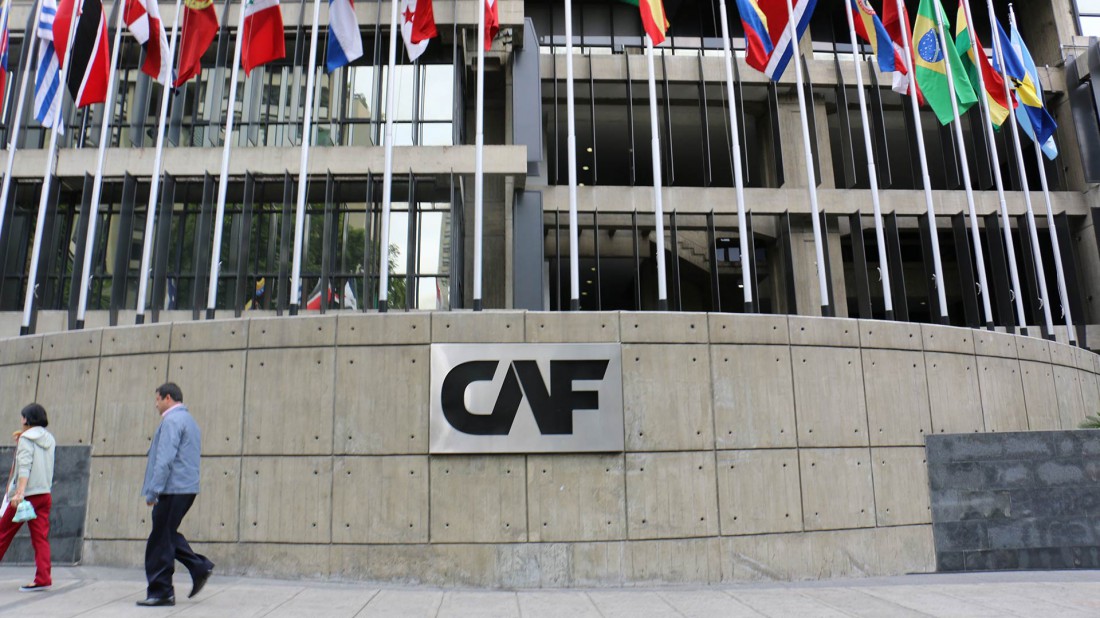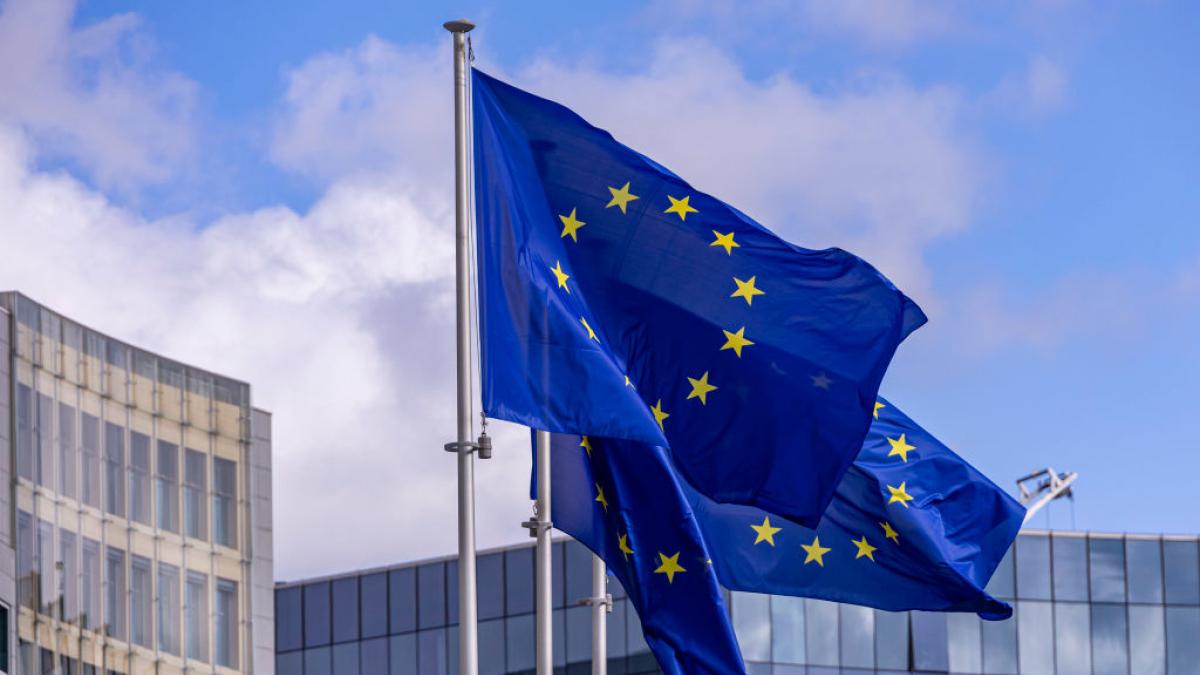Climate Week NYC Opening Ceremony: Key Principles for Climate Action—Who, What & Why

|
Listen to this story:
|
- Critical crossroads: Leaders at Climate Week NYC call for urgent, decisive actions to combat the climate crisis and limit warming to 1.5°C.
- Equity in transition: Developing nations and vulnerable communities must be prioritized in climate finance and adaptation efforts.
- Decarbonization now: Leaders stress the need to phase out fossil fuels while accelerating scalable innovations in renewable energy and technology.
Climate Week NYC 2024: A Call for Bold Action
Climate Week NYC 2024 opened with a powerful message: “It’s Time.” Hosted in partnership with the United Nations General Assembly, the event brings together global leaders from across industries, governments, and civil society to unite on one of the most pressing issues of our time—climate change. Over 600 events will take place from September 22-29, underscoring the urgency of the global climate crisis and the shared responsibility to act.
Helen Clarkson, CEO of Climate Group, opened the ceremony with a sobering reminder: “History will judge us. One hundred years from now, people will look back and ask: Did they know? Did they act? We cannot afford to be the generation that failed to pull the handbrake.” Clarkson’s speech set the tone for the event with five key principles for climate action that cannot wait.
Key Principles for Immediate Climate Action
1. Put People First
Clarkson’s message was clear: The transition to a low-carbon future must prioritize equity. The most vulnerable populations—those who have contributed the least to climate change—are often hit the hardest. The transition must not only be green but also just, providing new opportunities and security for workers and communities. Clarkson urged:
“The benefits of the green economy cannot be confined to a wealthy minority. We must ensure they are shared by all, particularly those most impacted by climate disasters.”
In this context, climate adaptation must address the needs of frontline communities who face the brunt of climate change, from rising sea levels to extreme weather events.
2. Pay Up
The Global North, with its historical responsibility for carbon emissions, must honor its commitments to climate finance. This principle underscores the need to funnel more resources into climate mitigation and adaptation for developing nations. Clarkson emphasized: “The Global North has a moral and financial obligation to ensure that those living in climate hotspots are protected. We cannot allow the poorest nations to bear the costs of a crisis they didn’t create.”
Her call for a fair distribution of climate finance was echoed by other speakers, including Patricia Scotland, Commonwealth Secretary-General, who highlighted the worsening crises of water scarcity, food insecurity, and biodiversity loss. “We must build resilience, especially in the most vulnerable communities. This means that finance must be unlocked now, not tomorrow,” she said.
3. Listen to Citizens
The global populace has made its voice clear: According to the UNDP, over 80% of people globally demand stronger climate action. Clarkson urged leaders to heed this call:
“This isn’t just a government or corporate issue. People are waking up to the realities of climate change, and their demands are becoming impossible to ignore. It’s time to turn that awareness into action.”
Despite ongoing disinformation and political inaction, Clarkson emphasized that the public overwhelmingly understands the gravity of the climate crisis. The urgency, she argued, is real, and the people want change.
4. Be Honest
Clarkson’s fourth principle urged leaders to be realistic about the role of technology in solving the climate crisis. While innovation is essential, Clarkson warned against the allure of “silver bullet” technologies that are still years away from deployment: “We cannot afford to wait for unscalable solutions. The hard work of deploying existing renewable energy technologies, reforming policy, and updating regulatory frameworks is not glamorous, but it’s necessary.”
5. Tackle Fossil Fuels Head-On
Clarkson didn’t shy away from addressing the elephant in the room—fossil fuels. Phasing out fossil fuels remains critical to reaching net zero emissions by 2050. She questioned how oil-producing countries and companies can be convinced to shift their business models, given their short-term profit incentives.
“Every country thinks it will sell the last barrel of oil, but the truth is, the future must be fossil-free,” Clarkson declared. This will require undoing decades of influence, lobbying, and systems that have disproportionately benefited fossil fuel industries.
Time to Course Correct
“We are living in a state of climate emergency,” Clarkson declared at the ceremony. The urgency of action was underscored by the fact that global emissions are still far too high to prevent overshooting the critical 1.5°C threshold, which could happen as early as this year.
Philip E. Davis, Prime Minister of The Bahamas, echoed this sentiment in his keynote speech, calling for an end to “business as usual.” He framed the climate crisis as both a challenge and an opportunity for economic growth and innovation: “We are seeing a wave of change, and this is our moment to move past incremental actions and make transformative changes,” Davis said.
He highlighted the need for bold, immediate steps:
- Treat the crisis like the emergency it is.
- Finance the just transition and ensure equitable access to resources.
- Phase out fossil fuels immediately.
- Bolster support for climate adaptation in the most vulnerable communities.
Time to Speed Up
While the challenges are immense, the speakers emphasized that progress is possible. Benoit Bazin, CEO of Saint-Gobain, pointed to the rapid advancements in sustainable construction, driven by technological innovations like IoT. “We need to accelerate the scaling of solutions already in play,” he said, calling for increased collaboration between public and private sectors.
Patricia Scotland also addressed the need to speed up progress: “The realities of climate change are clear—what we need now is the political will to push through comprehensive solutions.” She pointed to the importance of AI and increased data sharing to help organize and manage climate-related efforts.
Mark Patel, Senior Partner at McKinsey, added that technological solutions to climate change can be profitable as well. “The financial return on climate tech can be significant, and we need to continue innovating at scale to ensure 1.5°C remains within reach.”
Time to Finish the Race
The ceremony concluded with a strong message of defiance and hope. Senior Advisor John Podesta reminded the audience of the stakes: “The climate emergency is a race we are losing, but it’s one we can still win.”
Former New Zealand Prime Minister Jacinda Ardern delivered a closing speech that was both a rallying cry and a call for collective action: “The window of opportunity is closing fast. We must act, and we must act now. There is no room for delay.”
Ardern’s words reflected the sentiments of the many global leaders present, who stressed that a sustainable future requires both immediate action and long-term commitment. Building a green economy will not only combat the climate crisis but also address economic, gender, and racial inequalities, ensuring that no one is left behind in the green transition.
The final session, titled Plugging the Finance Gap for Good, emphasized the critical role of finance in driving climate action. Moderated by Helen Clarkson, the panel discussed the unmet promise of the US$100 billion climate finance commitment and the need for greater mobilization of funds to support a just and equitable transition.
Related Article: ESG News Releases ‘Top 14 Inspiring Women Leading The Fight Against Climate Change’
It’s Time: A Call to Action
The overarching message of Climate Week NYC 2024 was clear—It’s Time. Time to act decisively, time to push forward, and time to build a future that is both sustainable and equitable for all.
For live updates on Climate Week NYC and insights from the events, follow here.









